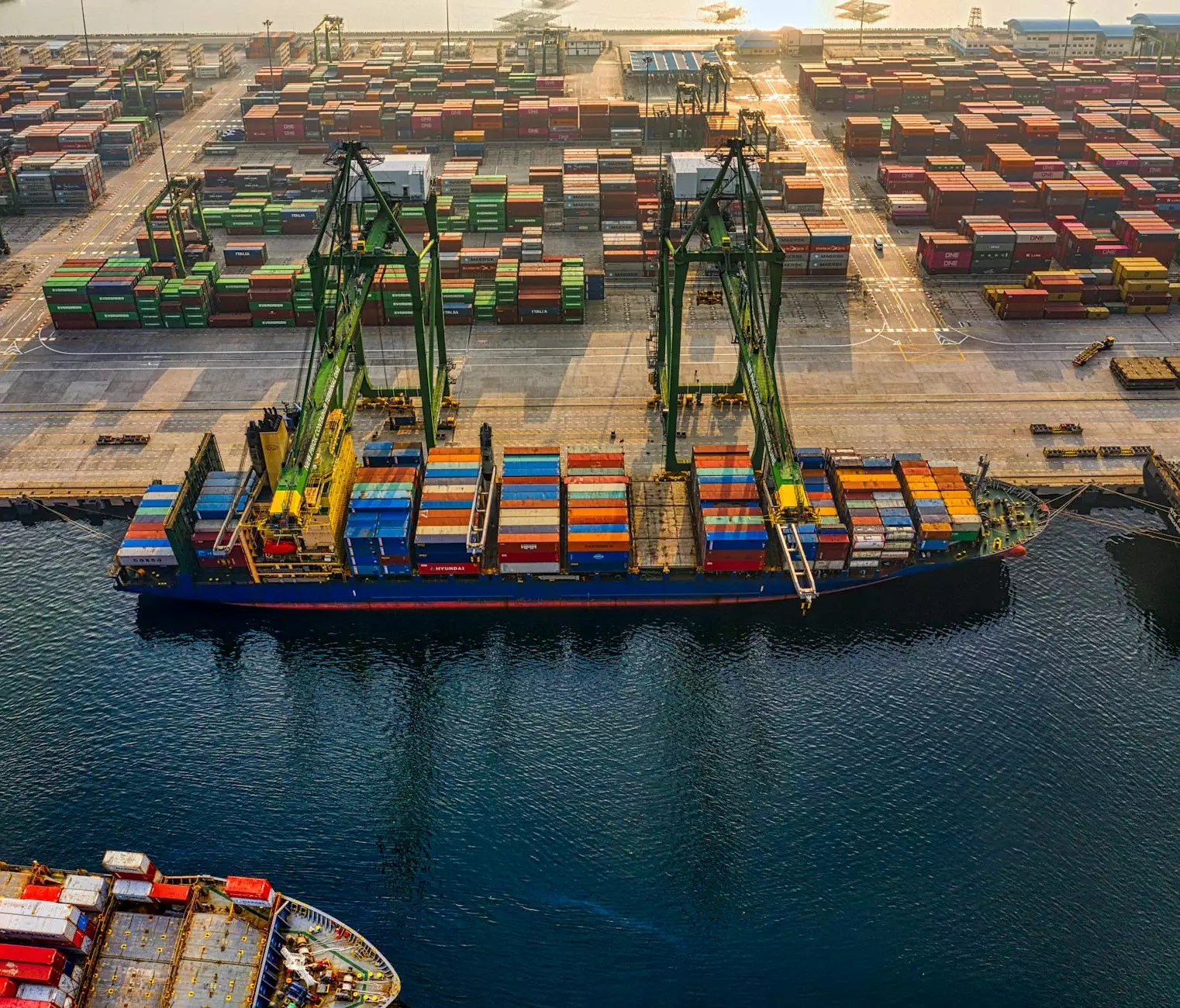Exploring Warehousing and Logistics Jobs: Opportunities and Insights

The warehousing and logistics sector is an essential cornerstone of the global economy, constantly evolving to meet the needs of consumers and businesses alike. This article delves into the various warehousing and logistics jobs available and provides invaluable insight into the skills, qualifications, and best practices for success in this vibrant industry.
The Importance of Warehousing and Logistics
With the rapid growth of e-commerce, the importance of warehousing and logistics has never been more pronounced. Warehouses act as the pivotal link between suppliers and consumers, ensuring that goods are stored, managed, and delivered efficiently. In recent years, logistics has become increasingly sophisticated, integrating advanced technology to streamline operations and improve service delivery.
Key Components of Warehousing and Logistics
- Inventory Management: This involves overseeing the inventory levels, ensuring that stock is replenished promptly to meet customer demand.
- Order Fulfillment: The process of picking, packing, and shipping orders accurately and efficiently.
- Transportation Management: Coordinating the movement of goods by various transportation modes while optimizing routes and costs.
- Warehouse Operations: Ensuring that the physical storage and handling of products are performed safely and efficiently.
Types of Warehousing and Logistics Jobs
There is a wide array of warehousing and logistics jobs available for individuals with diverse backgrounds and skills. Here are some prominent roles:
1. Warehouse Manager
A warehouse manager is responsible for overseeing the day-to-day operations of a warehouse. Their role includes managing staff, optimizing processes, and ensuring safety compliance. Effective warehouse management is crucial for maintaining high levels of productivity and efficiency.
2. Logistics Coordinator
The logistics coordinator plays a vital role in ensuring that the movement of goods is coordinated effectively. This includes liaising with suppliers and customers, tracking shipments, and resolving any issues that may arise during transportation.
3. Inventory Specialist
As an inventory specialist, one is tasked with maintaining accurate inventory records, conducting regular stock counts, and identifying slow-moving items. This position is critical in improving inventory turnover and minimizing costs.
4. Supply Chain Analyst
A supply chain analyst utilizes data analysis to improve supply chain efficiency. They assess data from various sources to identify trends and make informed decisions that optimize logistics operations.
5. Forklift Operator
Forklift operators are essential in warehouses, responsible for moving goods and materials. This role requires certification and a keen understanding of safety protocols to prevent accidents and injuries.
Essential Skills for Success in Warehousing and Logistics
To thrive in warehousing and logistics jobs, individuals must possess a combination of technical and soft skills. Here are some of the most important:
- Attention to Detail: Accuracy is paramount in logistics. Ensuring that every item is accounted for and correctly processed can prevent costly errors.
- Communication Skills: Effective communication with team members, suppliers, and clients is essential for smooth operations.
- Problem-Solving Abilities: Logistics can present unique challenges that require quick and effective solutions.
- Technical Proficiency: Familiarity with warehouse management systems (WMS) and logistics software is increasingly important as technology continues to evolve.
- Physical Stamina: Many warehousing and logistics jobs involve manual labor, so physical fitness and stamina are beneficial.
The Impact of Technology in Warehousing and Logistics
Technology plays a revolutionary role in enhancing the efficiency of warehousing and logistics operations. Here are some ways in which technology is shaping the industry:
1. Automation
The use of automated systems in warehouses can significantly reduce human error and improve speed. Examples include automated guided vehicles (AGVs), robotic picking systems, and automated sorting systems. These technologies streamline processes, allowing for faster and more accurate order fulfillment.
2. Warehouse Management Software (WMS)
Warehouse Management Systems are software solutions that facilitate inventory tracking, order management, and data analysis. By implementing WMS, companies can enhance their operational efficiency and reduce costs.
3. Data Analytics
Data analysis allows logistics companies to make informed decisions based on trends and patterns. By analyzing supply chain data, organizations can optimize their operations, reducing waste and improving customer satisfaction.
4. Internet of Things (IoT)
The IoT connects various devices and sensors in the logistics process, providing real-time insights into inventory levels and shipment statuses. These capabilities help improve visibility and enhance the overall efficiency of supply chain operations.
Career Advancement in Warehousing and Logistics
For those looking to build a successful career in warehousing and logistics jobs, a commitment to continuous learning and professional development is essential. Here are a few strategies to advance in this field:
1. Pursue Relevant Certifications
Certifications such as Certified Supply Chain Professional (CSCP), Certified Logistics Professional (CLP), or OSHA Safety Certification can enhance your qualifications and make you a more attractive candidate to employers.
2. Gain Experience through Internships
Internships provide hands-on experience and valuable insights into the industry. Many companies offer internship programs that can lead to full-time positions upon successful completion.
3. Networking
Building a professional network is vital in the logistics industry. Attend industry conferences, join professional organizations, and engage with others in the field through platforms like LinkedIn.
4. Stay Updated on Industry Trends
The logistics landscape is constantly changing. Subscribe to trade publications, attend webinars, and take part in discussions to remain informed about the latest trends and technologies in warehousing and logistics.
The Future of Warehousing and Logistics Jobs
The future looks promising for warehousing and logistics jobs as e-commerce continues to drive demand for efficient logistics solutions. With the rise of technology and a focus on sustainability, the industry will evolve, creating new job opportunities and requiring new skill sets.
Emphasis on Sustainability
As businesses become more aware of their environmental impact, there is a growing focus on creating sustainable logistics practices. This includes optimizing delivery routes to reduce carbon footprints, using eco-friendly packaging, and implementing energy-efficient solutions in warehouses.
The Need for Skilled Workers
As technology advances, the demand for skilled workers in the warehousing and logistics sector will increase. Companies will seek individuals who can leverage technology and data to improve operations and efficiency. Embracing change and continually developing your skills will be critical for successful career paths in this field.
Conclusion
In conclusion, the field of warehousing and logistics jobs is rich with opportunities for career growth and development. By understanding the critical components of the industry, acquiring essential skills, and staying abreast of technological advancements, individuals can pave their way to success in this dynamic sector. At job4u.ae, we are committed to connecting talented individuals with rewarding roles within the warehousing and logistics landscape. Join us today and embark on a fulfilling career journey!









